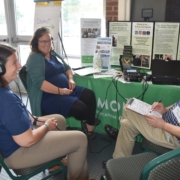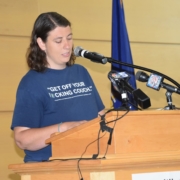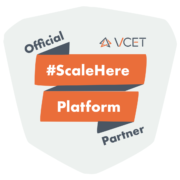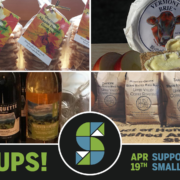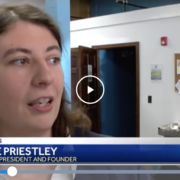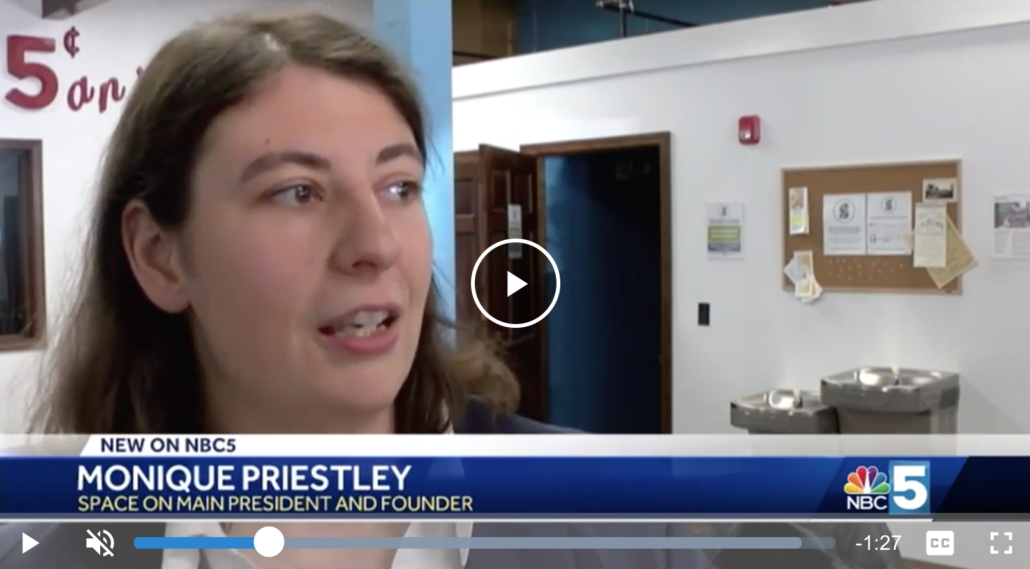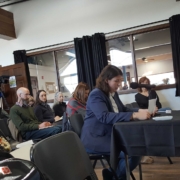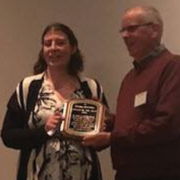If ever there was a case for The Space, it is now.
It’s our birthday! Wow. I just rewatched the Ribbon Cutting Ceremony from October 12, 2018. What an interesting 3 years it has been since we opened our doors! In so many ways, it feels like we are just getting started. The Space On Main has felt like a series of experiments, all colliding and blending as we figure out the gaps we can fill and the needs we can address. Entering March 2020, everything felt like it “clicked”. We had quite a few members, many of which were often found at The Space. Our Conference Room and Event Space were being rented on a daily basis for workshops, meetings, and community gatherings – not only by people in the area, but by state Senate committees, state agencies, New England nonprofit groups, and so on. It felt busy, full, and as if this experiment was actually going to work. Two weeks later, COVID closed us down entirely and we grappled with whether or not we could or should power through. COVID could have easily meant the end to The Space. It meant the end for so many similar spaces and if it wasn’t for community support – your support – we wouldn’t still be here. But I am so thankful that we are.
While we were closed, we quickly adapted to a supporting role. Whether it was through online programming, teaching workshops on how to use Zoom, jumping into mutual aid efforts, or acting as a convener to make sure that critical conversations were happening so that we could all, as a region, support each other through difficult times. Although COVID has been a period of disconnection, anxiety, sadness, and monumental struggles, it has also been a period of growth and adaptation. One of reprioritizing values, of rethinking scope, and of realizing how intertwined and connected we all are – no matter where we are. If ever there was a time to support remote work, it’s now. If ever there was a time to foster community connection, it’s now. If ever there was a time to give people opportunities to grow, learn, share, and express themselves, it’s now. If ever there was a need for The Space On Main, it is now.
There were times when I personally doubted that we could or should pull through. But every time that I had those thoughts, someone expressed extreme gratitude that The Space existed. It allowed many people to move here and maintain their jobs remotely, giving our region a much needed economic boost. We have had several multi-generational and extended families (whole families) join as members so they could stay together safely for the summer. We have had people who were hiking through the area and joined from trailheads for work meetings. We have had caretakers who moved closer to family join so they could keep their jobs. We have had nurses and mental health providers join in order to keep their telehealth appointments with patients. We have seen COVID bring people closer to family and closer together from all around the world and it is incredible that we can play a part in making that possible.
As we celebrate our 3rd birthday, there are so many people and organizations to thank, but there are those that really pulled us through and a few that have given us the support to start an incredibly strong 4th year. First, our amazing members. Many of you kept your memberships going, even while we were closed. Some of you have memberships you rarely use, for the sole purpose of supporting The Space. You always lend a hand when projects come up. You support each other. And you have navigated COVID respectfully and gracefully. This includes Sustaining Sparks, who are monthly supporters and cheerleaders. Second, there are individual donors. I am going to refrain from naming anyone because many of you have wished to remain anonymous, but you know who you are. You donated your stimulus checks, made us a year-end donation recipient, and otherwise were there to carry us through. Many of you give yearly, or even monthly. Third, there are organizations that we wouldn’t have made it without and that are expanding our capacity to fully realize our potential. These include Vermont Community Foundation (imagine this being listed 3+ times), Federal Reserve Bank of Boston (made possible by Wells River Savings Bank), Preservation Trust of Vermont, United States Department of Agriculture, The Arthur L. & Frances P. Hyde Fund, The Joe & Hellen Darion Foundation, and The Harmon Family Foundation. Fourth, there are partners that make programming possible, that expand our ability to serve, and that are always there to brainstorm, and to collaborate. This includes entities such as Proximity, Vermont Center for Emerging Technologies, LaunchVT, Cohase Chamber of Commerce, Center for Women & Enterprise, US Small Business Administration, the Agency of Commerce & Community Development, Vital Communities, Community Capital of Vermont, Vermont Council on Rural Development, Do North Coworking, Black River Innovation Campus, Local 64, and so many others. There are so many more partnerships in the works for the year ahead, and I couldn’t be more excited to work together. Lastly, the community in general. The people who tell their families that The Space exists, who show up to the Artisan Market, who attend events, who share our Facebook posts, and who otherwise always have our back. Thank you. (Also, I am writing this on behalf of the organization, but I’d personally like to give our board a shoutout because they have been flexible, supportive, and open to experimentation in ways that many groups are not. They are silent heroes here.)
I am excited for the year ahead. Thanks to your support, for the first time ever, we will have a paid staff member. As of January 1, I will be dedicating my full attention to The Space and going all-in for the first time ever. It is scary, but I am so overjoyed and excited to see what we can do. This will allow us to actively work on marketing, development, and most importantly, regular programming. We pursued and were successful on several large grant applications this year which means that we were able to get funding to finish two rooms which have been sitting vacant. One of these will be a Digital Fabrication & Electronics Lab (aka makerspace). The other will be a Multimedia Lab (aka digital recording room). We were also able to secure funding for sound equipment, video conference cameras (for hybrid meetings), steaming videocameras (for events), laptops in order to offer community workshops for youth and adults, and for business accelerator curriculum licenses in order to offer entrepreneurship classes to youth and adults. To sum it up, there is a whole lot of magic that is going to happen this coming year. Once everything is set up, we will be hosting a celebration and open house after the first of the year. We hope you will be able to join us.
In the meantime, I am busy planning out programming focused in 4 main areas: Economic Development & Entrepreneurship, Civic/Community Engagement, The Arts, and Technology & STEAM Education. All programming will have offerings for both youth and adults. This will include things like live music, Artisan Markets, Citizens’ Academies, business planning courses, game design workshops, coding/programming classes, 3D printing workshops, rocketry classes, and loads more. Of course, we have offered programming since we opened, but in a limited capacity and we are ramping up for regularly scheduled offerings that will engage people as often as possible. And of course, The Space is open to be rented by any community group that wishes to host public programming which can easily be livestreamed and/or made hybrid. We hope you will join us!
Thank you so much for your time, energy, monetary support, and love,
Monique Priestley


